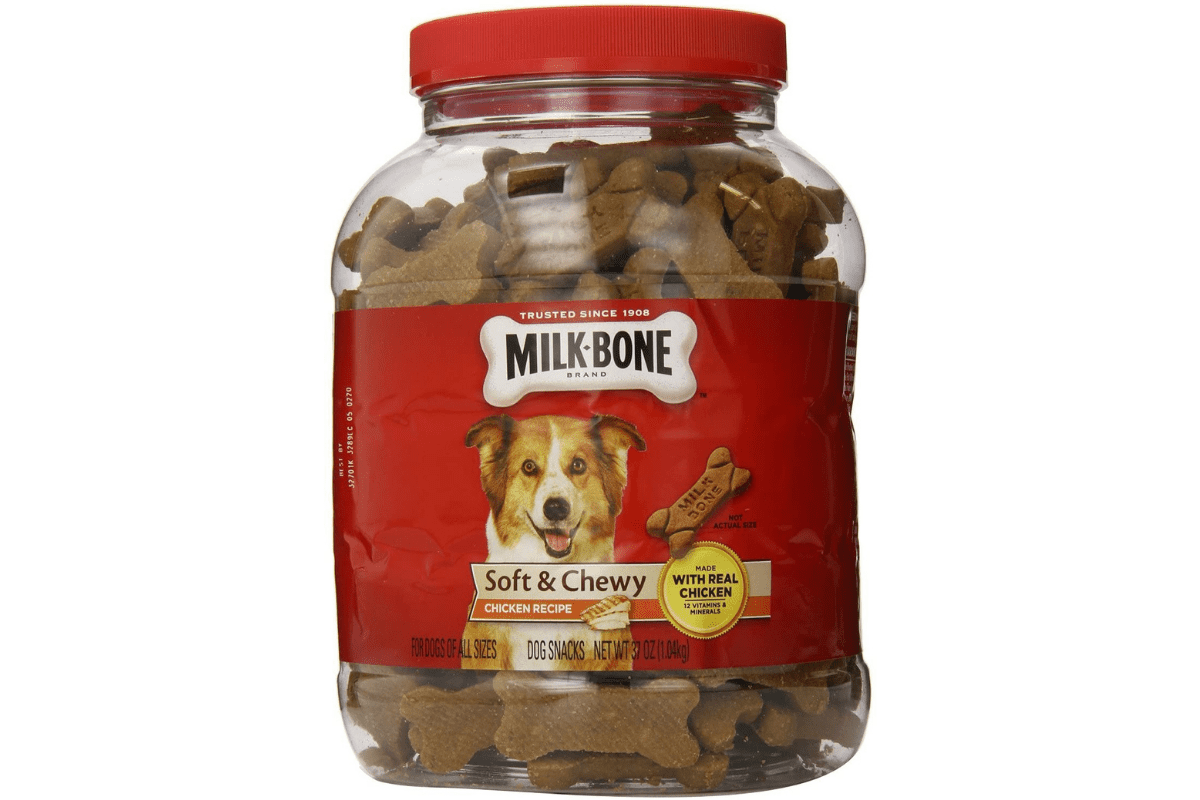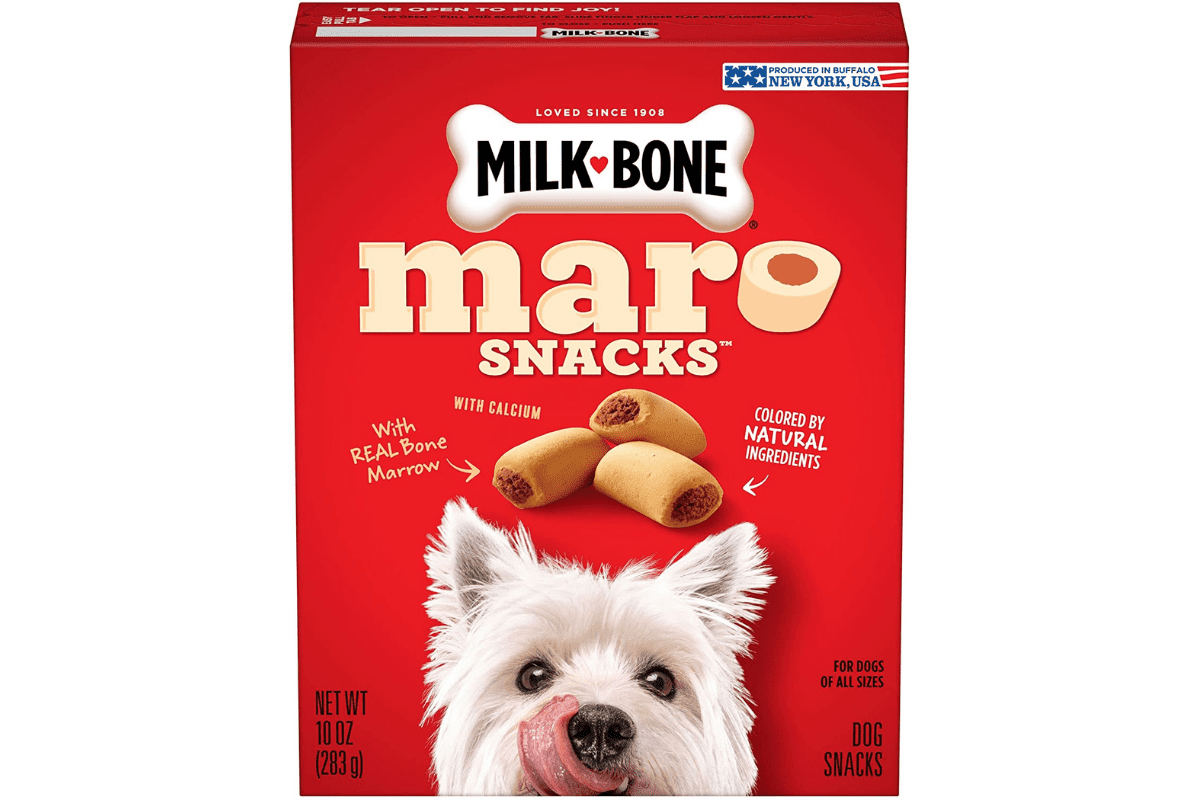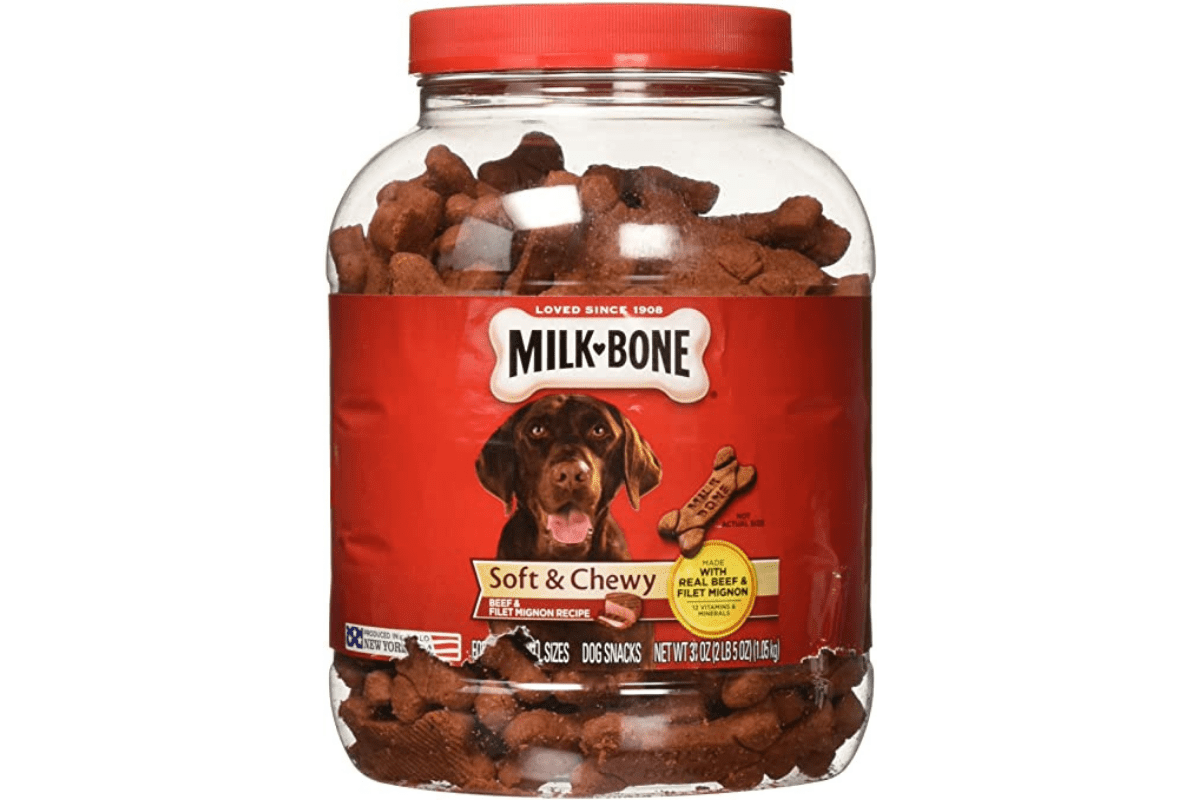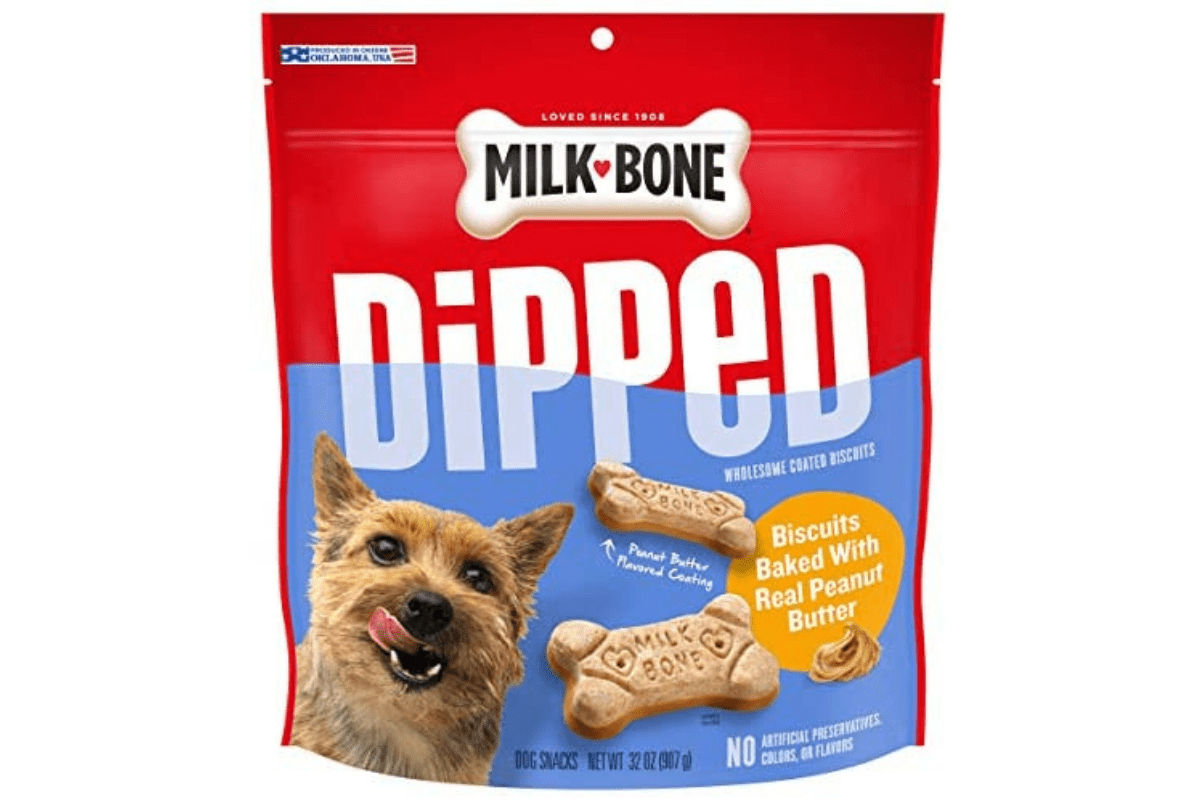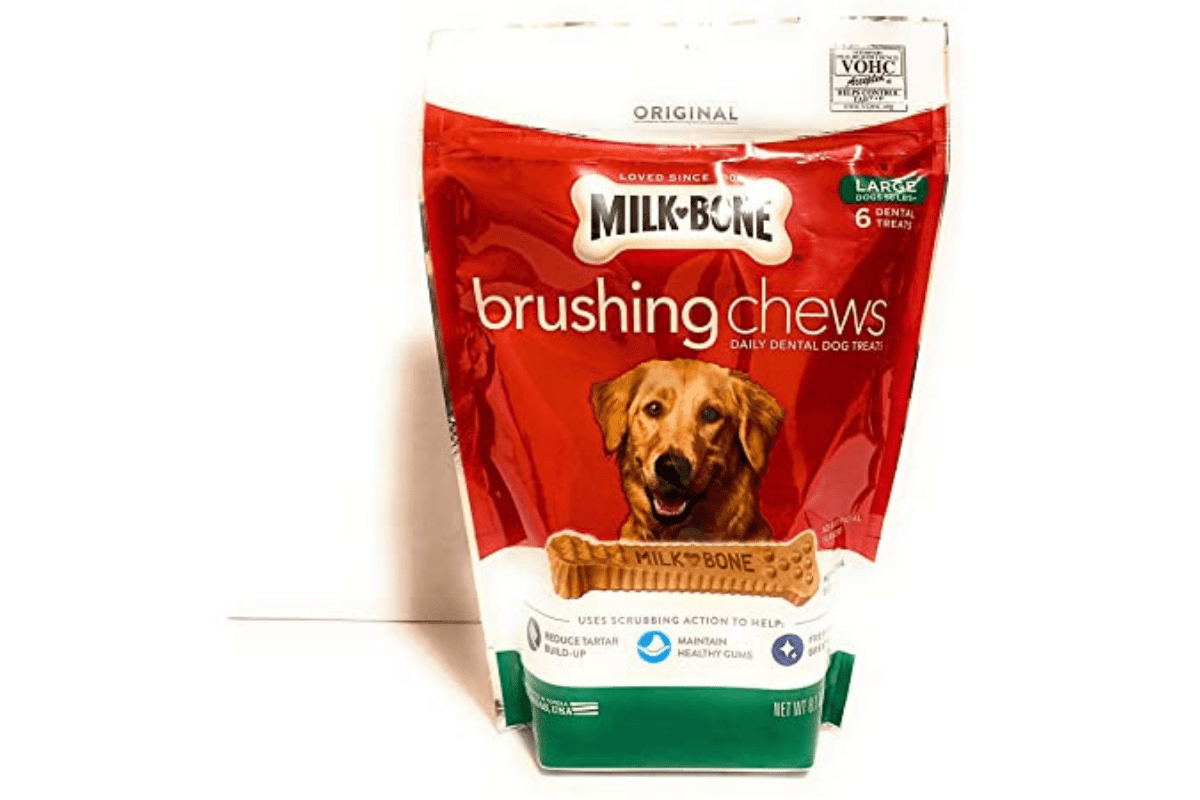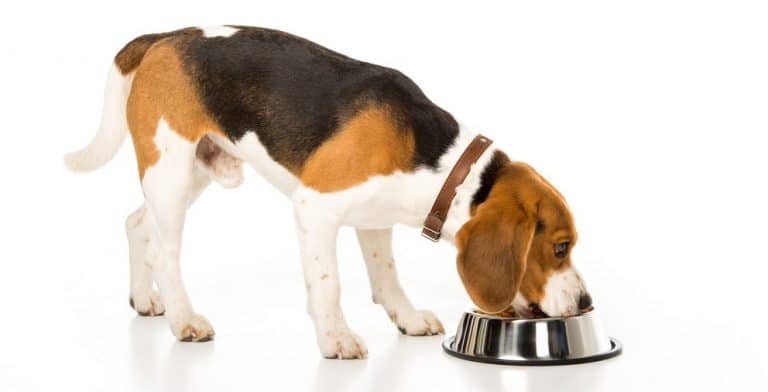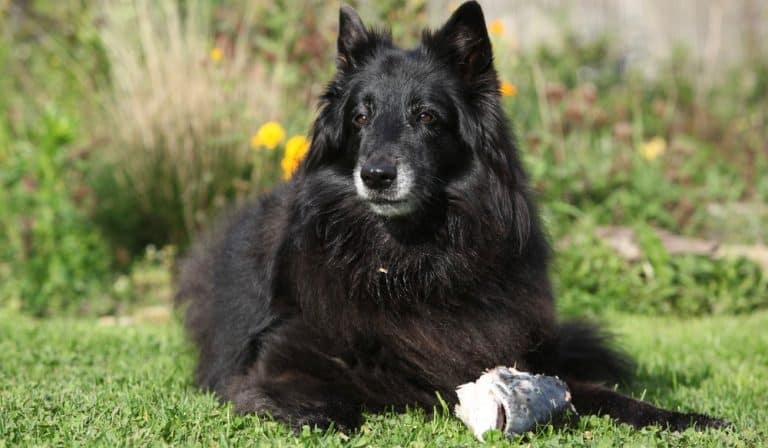Are Milk Bones Bad For Dogs? (Detailed Review)
Training your dog is hard enough, however, most dog owners will tell you that it would be a lot harder without milk bones.
This is a method of rewarding your dog when they have completed a trick or a maneuver that will incentivize them to perform it again.
Milk bones are the best way to train your dog since they can help develop their sense of smell and taste. They also help with their chewing skills as well as their ability to learn new tricks.
However, if you do not want to use milk bones, there are other ways to reward your dog. You can simply give them a treat when they complete a task.
However, you might feed your dog a lot of these treats during its life, and you might be curious to know if it negatively affects their health. Milk bones are made from cow’s milk, which has been processed into powder form.
Therefore, it contains lactose, which is a sugar found in milk. It is this sugar that makes milk bones so popular among dog owners.
Keep reading this article, and we’ll give you everything that you need to know about milk bones.
What Are Milk Bones?
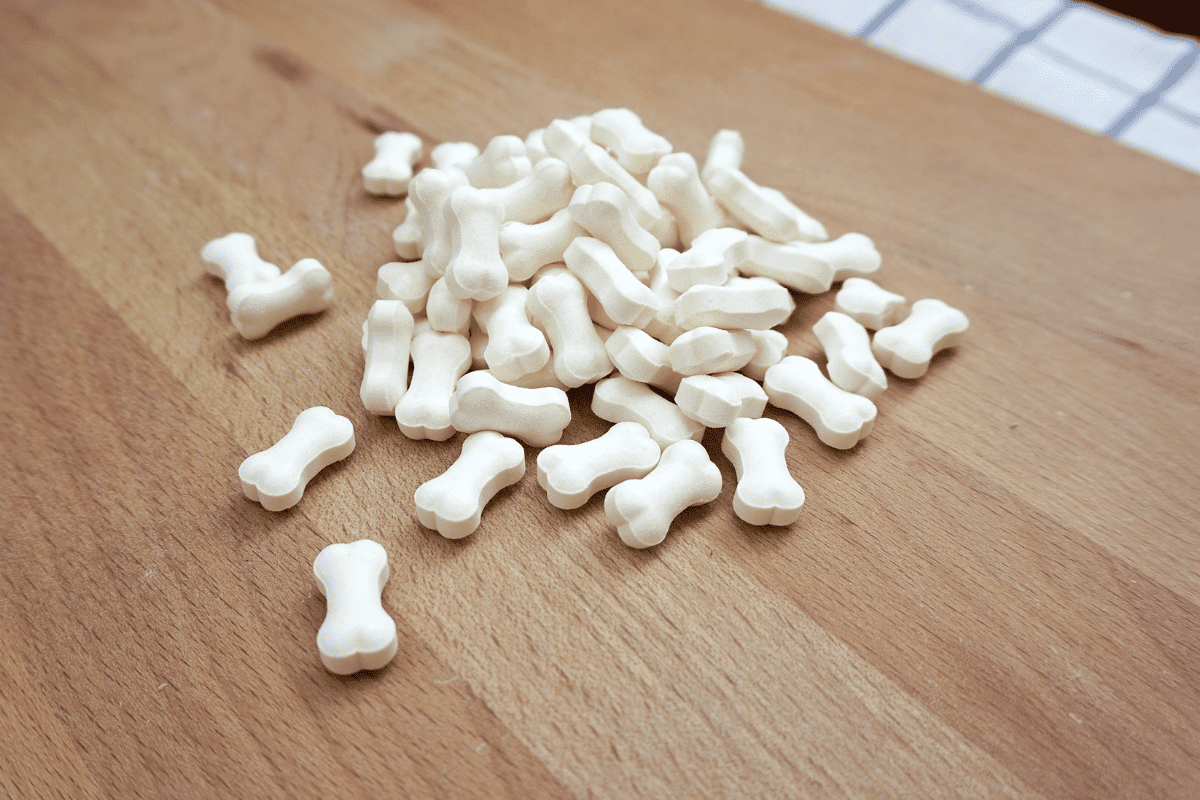
Milk bones are small pieces of bone that contain powdered milk. They are usually given to dogs as rewards after they have performed certain tasks.
The reason why they are called “milk bones” is because of the fact that they contain a high amount of cow’s milk.
Most people think that giving their dogs milk bones is good because it helps build up their teeth. In fact, some veterinarians recommend that dog owners give their pets milk bones every day.
Milk bones usually come in the shape of a dog bone, although this is usually not a factor in whether the dog will eat it or not.
One of the main appeals of milk bones to dogs is the many flavors that they come in. Milk bones come in a variety of flavors including chicken, beef, fish, and many others. Some even come with a special coating on them to make them more appealing to dogs.
These milk bones have also been claimed to give their dogs more independence. If you give your dog a milk bone, he will feel like he is eating something that is his own. He will also feel like he is doing something that is just for him.
What Ingredients Go Into A Milk-Bone?
The ingredients that go into making a milk bone include
- Powdered milk
- Flour
- Chicken or beef fat
- Bones and meat meal
- Vitamins and minerals
- Salt and sugar
- Preservatives
- Dried yeast
These ingredients are usually sourced from the company of manufacture. While all of these ingredients are safe for dogs, some may cause allergic reactions.
Are Milk Bones Healthy For Dogs?
There are no studies that prove that giving your pet milk bones is harmful. There are, in fact, many benefits to giving your dog milk bones.
They help strengthen their jaws and teeth. Dogs have been chewing these treats for over 100 years and owners swear by their ability to remove plaque and gum bacteria.
Some owners say that they are able to prevent tooth decay by using milk bones. This is because of the calcium content in milk bones.
Another benefit of milk bones is that they help encourage your dog to chew. Chewing is important for dogs because it helps clean their teeth and gums.
This will also provide your dog with a lot of additional nutrients as it comes with plenty of vitamins and minerals injected into it.
Can You Give Your Dog Milk Bones As A Substitute For A Healthy Diet?
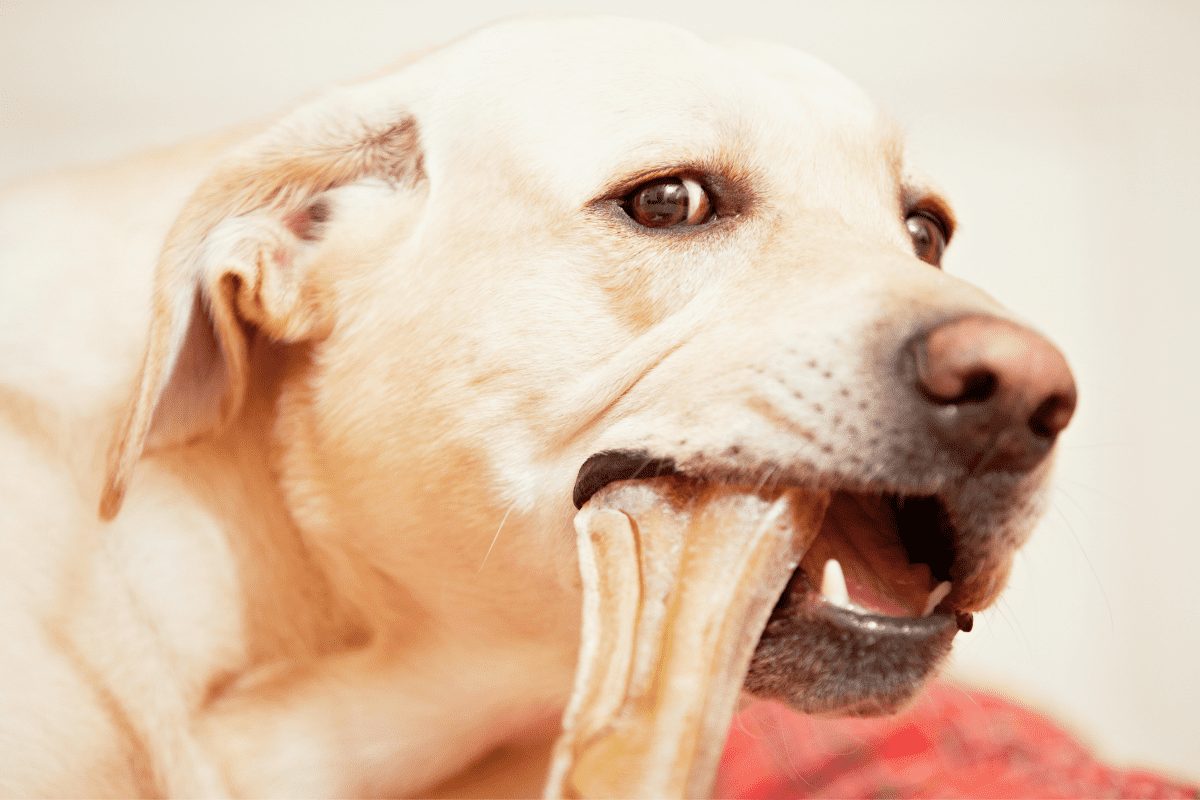
No! Giving your dog milk bones is not a substitute for a healthy diet. Your dog should get regular exercise and proper nutrition.
You can give your dog milk bones as a treat, but only when he is well-fed and exercised regularly.
If you want to give your dog milk bones, then be sure to buy quality products. These should be made from natural ingredients and free from artificial colors and preservatives.
If you do decide to give your dog milk bones, be sure to monitor how much he eats. Too much of anything can lead to obesity.
The company that produces milk bones will suggest that you feed your dog only 1 – 3 milk bones per day. This means that you will have to ration out these treats sparingly.
Your dog can experience side effects that could negatively impact its health if it eats too much milk bone. However, we’ll talk more in-depth about this in subsequent sections.
Why Are Milk Bones Bad For Your Dog?
Milk bones can be harmful to your dog’s health if consumed in excess. They contain high levels of sodium, which can result in water retention.
Here are some of the reasons why you won’t want to feed your dog too much milk bone.
They Contain Preservatives
Many companies use chemicals such as boric acid and benzoic acid to keep the bones fresh. These chemicals can cause irritation to your dog’s digestive tract.
These preservatives are included to help extend the life of the milk bones biscuit.
However, there is no need to worry if your dog has an upset stomach after eating them.
They Contain Sugar
Most milk-bones biscuits are loaded with sugar. This makes them very sweet and sticky.
It is recommended that you cut down on your dog’s consumption of milk bones. If you don’t, you risk causing him to become overweight.
They Contain Chemicals
There are other chemicals added to milk bones to make them taste better. Some of these include
- Sodium Benzoate (E210)
- Sodium Propionate (E211)
- Potassium Sorbate (E220)
- Sodium Saccharin (E951)
Potassium Sorbate is used to preserve foods. It is found in many processed food items including bread, cereals, crackers, cookies, and candies.
Sodium Benzoate is used to preserve meats, fish, poultry, and dairy products.
Sodium Propionate is used to preserve fruits, vegetables, and jams.
Some of these chemicals might react adversely with your dog’s body, causing digestive failure, liver failure and diarrhea.
What Is BHA?
BHA stands for Butylated Hydroxyanisole. It is one of the most commonly used preservatives in pet food. This product is believed to be carcinogenic, although this has not been fully confirmed by a lot of studies.
Here are some facts about BHA and how it can affect the health of animals:
BHA is known to cause benign tumors in rats and lab mice.
BHA is suspected to cause cancer in humans, and is determined by the National Toxicology Programme as being a human carcinogen.
One method of avoiding these carcinogens is by getting a milk bone that is made from natural preservatives.
You should also avoid feeding your dog any type of food that contains artificial additives.
However, you should not avoid giving your dog milk bones in general. If you feed your dog the recommended allowance of milk bone, then you can be sure that it will not develop any of these symptoms.
Can Milk Bones Give Your Dog Cancer?
The idea that milk bones can give your dog cancer is simply untrue. There have been numerous studies done on this topic. The results show that milk bones only increase the chances of developing cancer if they are given to your dog in massive quantities.
In fact, they may even reduce the chance of developing certain types of cancers.
Milk bones are a great source of calcium and vitamin D. Both of these nutrients are needed for healthy bones. However, there are other sources of both of these nutrients available. You should look into those options before continuing to feed your dog milk bones.
Can Milk Bones Upset Your Dog’s Stomach?
If you notice that your dog is having problems after he eats his milk bones, then you should take action immediately. He could be suffering from indigestion or constipation.
These conditions can often be treated at home. In the case of constipation, you should try to encourage your dog to eat more fiber-rich foods like grasses and hay.
But the fact is that milk bone will only cause diarrhea in dogs if it is fed to them in massive quantities. If you have noticed that your dog is suffering from diarrhea from milk bones, then you can just reduce the daily intake and see if this improves the situation.
Can Milk Bones Clean Your Dog’s Teeth?
This treat can certainly improve the condition of your dog’s teeth. Many pets suffer from gum disease because their owners do not brush their teeth regularly enough.
Milk bones help clean out plaque and tartar buildup from your dog’s teeth. They also help keep his gums healthy.
This type of treat is designed to give your dog a much cleaner mouth. So, if you want to make sure that your dog does not get cavities, then you should continue to feed him milk bones.
This will help to improve the health of your dog’s back teeth, which are often hard to reach with a toothbrush. These back teeth are very important for chewing, so you’ll need to make sure that they are clean at all times, so they don’t wear away.
The Best Milk Bones
Now we’ve had a look at some of the reasons why milk bones are good for your dog, we’ll have a look at some of the best brands and why you should get them for your favorite pooch.
Milk Bone Soft & Chewy Dog Snacks
This first dog chew is ideal for those dogs that have sensitive teeth or if you are trying to train a young pup whose teeth have yet to develop.
It contains no artificial flavors or colors and has no added sugar. This means that it is safe for your dog to consume. It comes in an easy-to-open bag and measures 2 inches long by 1 inch wide.
It features a soft chewy texture that makes it perfect for small mouths. It is made from 100% natural ingredients and is suitable for all breeds and ages.
These treats are made from real chicken, which will certainly appeal to dogs who are hankering for the real taste of meat.
These dog treats also come with plenty of vitamins and minerals that will contribute to the overall health of your dog.
Pros
Made from 100% natural ingredients
Suitable for all breeds and ages
Comes in an easy-to-open bag
Cons
Not recommended for large breed dogs
Milk-Bone MaroSnacks Dog Snacks
This next milk bone snack comes with a marrowbone center that will help your dog build strong bones and healthy teeth.
This dog treat comes with a crunchy exterior that you can be sure will give it plenty of reason to tuck in. They are easily chewable and won’t cause your dog any pain when chewing.
They are made from 100% natural chicken and contain no preservatives or additives. The treats are also gluten-free, making them suitable for all types of dogs.
These treats are available in three sizes; small, medium and large. Each size offers a different amount of nutrients and calories.
Pros
Contains no preservatives or additives
Gluten-free
Available in 3 sizes
Cons
Small size may not provide sufficient nutrition
Medium size may not provide sufficient nutrients
Milk-Bone Soft & Chewy Dog Snacks
This next dog treat comes with an extra chewy flavor that you can be sure will give you everything that you need for a delicious treat.
Because these are softer treats, then they can be fed to younger or senior dogs who might have impaired chewing from youth or age.
Each one of these treats is made from 100% real chicken and is free of artificial flavors, colors and preservatives.
These come fortified with 12 essential minerals and vitamins, which is perfect for improving the health of your animal. This is even more beneficial if your dog is growing and you want them to have a healthy coat and teeth.
The treats are also great for puppies as they will enjoy the tasty morsels while learning how to chew properly.
Pros
All-natural
Free of artificial flavors, colors or preservatives
Great for puppies
Cons
May not meet nutritional needs of larger dogs
Milk-Bone Dipped Dog Biscuits Baked with Real Peanut Butter
This next treat will certainly appeal to any animal that has a sweet tooth. This is a delicious peanut butter treat that you can be sure will get wolfed down by your animal in no time at all.
This treat gives off a rich aroma that will make your pet’s mouth water. These biscuits come with a crispy outer layer that provides a nice contrast to the creamy interior.
The biscuit itself is baked using only real peanuts and other wholesome ingredients. It is also free of artificial flavors, preservatives and colors.
Pros
Made from 100% natural ingredients (no artificial flavors)
Free of preservatives
Rich in protein
Great for dogs with allergies
Cons
May not meet nutritional needs of large dogs
Milk-Bone Brushing Chews Daily Dental Dog Treats
Next up, we have a set of milk bone treats that are designed to help clean your dog’s teeth. You can be sure that you’ll have everything that you need to give your dog a bright and shining smile.
This comes with a seal of approval from vets who have certified this one as very beneficial for oral hygiene.
It contains calcium and phosphorus, both of which are important elements for strong teeth and gums.
There are two varieties of these treats; one is flavored with apple cider vinegar and the second is plain. Both of these options are great for helping keep your dog’s teeth and gums healthy.
Pros
Helps maintain dental hygiene
Made from 100% natural ingredients
No artificial flavors, colors or added sugar
No preservatives
Very affordable
Cons
Not suitable for all dogs
We hope that this list of some of the best and most diverse milk bone treats will help you narrow down which ones you’ll want for your dog.
These treats are not only easy to chew and swallow, but they will also give you everything that your dog needs for optimum nutritional health.
What Alternatives Are There To Milk Bones?
If you’re looking for something else to feed your dog besides milk bones, there are plenty of alternatives out there. Some of the best include:
- Rawhide chews
- Chicken jerky
- Beef jerky
- Turkey jerky
- Liver treats
- Dry food
- Other dry foods
- Bone meal
You can also get other dog biscuits that still have a high concentration of calcium. They will act in much the same manner as the milk bone treats.
However, you should make sure that it doesn’t contain too many artificial preservatives, as this might trigger an allergic reaction in your pet.
What Is The Best Method Of Feeding Your Dog Milk-Bone?
When it comes to giving your dog his daily dose of milk bone, there are several different methods that you can use. One way would be to simply place them into their bowl.
Another option would be to put them on top of the food so that they don’t get mixed up with the rest of the food.
Another method would be to cut them into smaller pieces and then mix them into the rest of the food before serving. If you do decide to go with this method, try to avoid cutting them into small pieces if possible. This could cause choking issues.
Another way to feed your dog his daily dose is by putting them into his water dish. Just remember to check the temperature of the water first.
How Much Should I Feed My Dog A Day?
The amount that you should feed your dog depends on how big he is. For example, a medium-sized dog may eat about three to four ounces per day.
The size of your dog will determine how often he should eat his milk bone treat. Smaller dogs tend to eat more frequently than larger dogs.
A good rule of thumb is to feed him once every few hours. So, if he eats at 8 am, then he should probably eat again around 4 pm. You should always monitor your dog’s appetite and see when he seems to need another snack.
Does The Amount That I Give My Dog Daily Matter?
Yes! It does matter how much you feed your dog each day. Too little can lead to malnutrition, while too much can lead to obesity.
According to the American Veterinary Medical Association (AVMA), you should aim to keep your dog’s weight within a certain range. This is usually between 20-30 percent of his body weight.
This means that if he weighs 50 pounds, then he should weigh somewhere between 25-35 pounds.
Should I Feed My Puppies Milk Bone?
Yes, you can feed your puppy any type of milk bone. As mentioned above, these treats are designed for adult dogs, but you can feed a puppy that is over 3 months old.
However, watch your puppy when eating milk bone, as it could potentially choke or even kill him.
There are other types of dog treats that are safe for puppies. These include rawhide chews, beef jerky, chicken jerky, liver treats, and others.
Can I Use Milk Bones To Train My Dog?
If you want to train your dog using milk bone treats, then you should definitely consider doing so. There are some great training tools out there that you can use to help teach your dog new tricks.
One such tool is called the “Milk-Bone Treat Ball”. It works by placing a ball inside of a hollowed-out piece of milk bone. Then, you just throw it away after your dog has eaten the treat inside.
Frequently Asked Questions
Q: What Are The Best Types Of Milk Bone For My Dog?
A: The best type of milk bone for your dog depends on what kind of dog he is. Some dogs like soft treats, while others prefer harder ones.
For instance, if your dog likes crunchy treats, then you might want to give him something like Beef Jerky.
Q: How Long Does It Take For My Dog To Eat His Milk-Bone?
A: Most dogs will finish their entire bag in less than 30 minutes. But, some dogs take longer to eat their treats.
Q: Do Dogs Get Sick From Eating Milk Bones?
A: No, they don’t get sick from eating milk bone treats. They can actually benefit from them because they contain calcium.
Conclusion
In conclusion, milk bone treats are an excellent way to reward your dog. Just make sure that you choose the right one for him. However, this should be easy, as you can find many different kinds of milk bone treats online.

